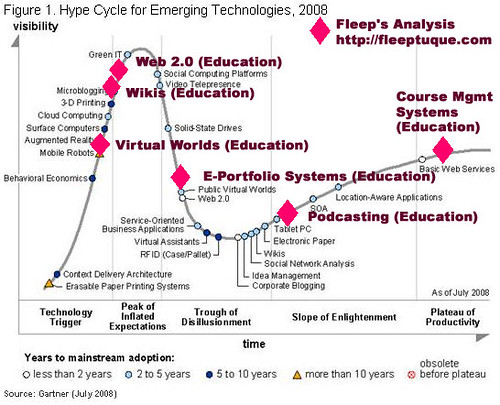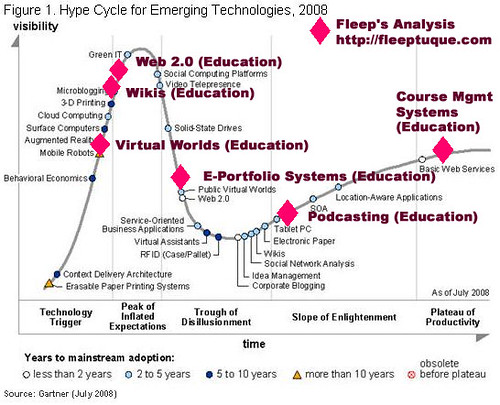While I don’t always think Gartner gets it right, I finally took a moment to compare this year’s hype cycle for emerging tech with last year’s – interesting to see where public virtual worlds are relative to the 2008 chart. You can see both Gartner’s analysis and my own thoughts from 2008 in the next graphic.
This year I think not much has changed, in terms of the _hype_ and level of adoption, with the exception that virtual worlds for education seems to be closer to the peak of inflated expectations. By 2010, I’d think Course Management Systems shouldn’t be on the list as an emerging technology as most institutions have adopted a platform by now.
Web 2.0 for education, or anything 2.0, still has not caught on except among technophiles, though the explosion of Twitter in the news is helping to move things along the hype cycle curve.
Do you work in higher education? What do you think?
Posted via web from Fleep






![Reblog this post [with Zemanta]](http://img.zemanta.com/reblog_c.png?x-id=747e33a2-bd05-4448-b789-a033ad76f097)